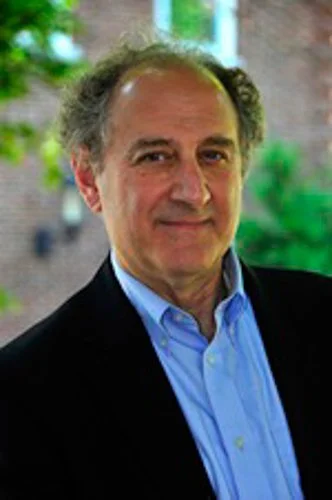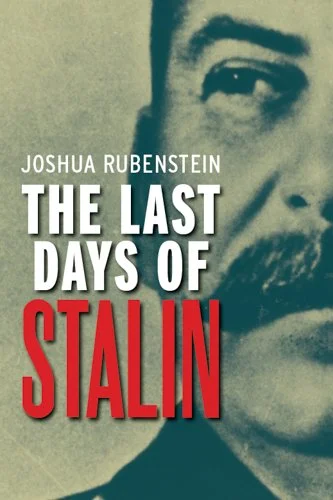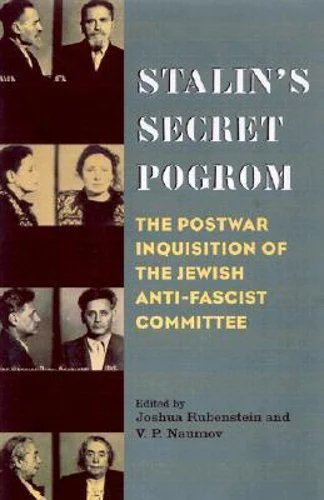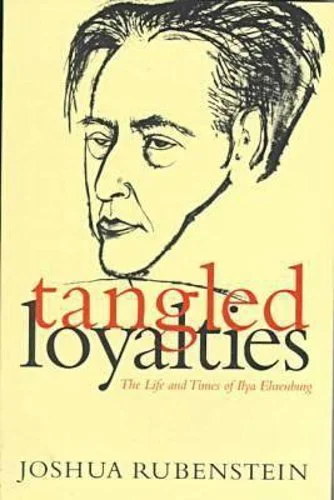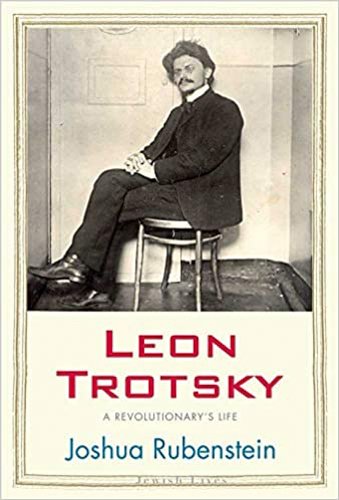Joshua Rubenstein
Joshua Rubenstein has been professionally involved with human rights and international affairs for over forty years as an activist and independent scholar with particular expertise in Russian affairs. He was on the staff of Amnesty International USA from 1975 to 2012, serving as an organizer and Northeast Regional Director. He is now Associate Director for Major Gifts at Harvard Law School. He is a longtime Associate at Harvard University’s Davis Center for Russian and Eurasian Studies, and is the author and editor of several major works on Soviet and Soviet Jewish history. He has also written about the history of the Soviet human rights movement and about the Holocaust in German-occupied Soviet territory.
The New York Review of Books called his first book, Soviet Dissidents: Their Struggle for Human Rights, "sympathetic, scholarly, and comprehensive." Rubenstein is also the author of Tangled Loyalties: The Life and Times of Ilya Ehrenburg, a biography of the controversial Soviet writer and journalist, which the New York Times Book Review called "convincing, judicious, and enjoyable." Tangled Loyalties has appeared in Russian, Hebrew, and Spanish translations. His book, Stalin's Secret Pogrom: The Postwar Inquisition of the Jewish Anti-Fascist Committee, was awarded a National Jewish Book Award. His latest book, The Last Days of Stalin, was just published by Yale University Press.
For more information about Joshua Rubenstein:
News
Joshua Rubenstein in the Wall Street Journal: “‘Israel’s Moment’ Review: The Hard Work of Getting Started”
The Jewish Historical Society in Leeds talks with Joshua Rubenstein about The Last Days of Stalin.
Books
Stalin's Secret Pogrom: The Postwar Inquisition of the Jewish Anti-Fascist Committee
In Stalin's Secret Pogrom, Joshua Rubenstein--a highly regarded authority on Soviet history, human rights, and international affairs--provides annotations about the players and events surrounding the case. In a long, compellingly written introduction, he draws on newly released documents in Moscow archives and on interviews with relatives of the defendants in Israel, Russia, and the United States to set the trial in historical and political context and to offer a wrenching account of Stalin's anti-Semitic campaign. Because much misinformation appears in respected English language works on the subject, and because the trial sheds so much light on the Jewish Question in the Soviet Union, Stalin's Secret Pogrom serves as an important corrective. Its revelations about the behavior of the defendants, who were tortured and held in isolation for more than three years, may prove controversial (almost all of them denounced each other in the trial and abased themselves in last-ditch attempts to save their lives). Certainly it provides a frightfully dramatic picture of the anti-Jewish character of Stalin's regime during his last year.
(Yale University Press, October 2005)
Tangled Loyalties
The definitive biography of the world-famous writer who survived five decades of Communism and whose life symbolizes the dilemma of Russian intellectuals in this century
Ilya Ehrenburg is one of the most important and controversial Russian cultural forces of the twentieth century, whose life spanned the tumultuous time from Lenin to Brezhnev. He was one of the few distinguished writers to survive Stalin. As a Jew, Ehrenburg is said to have betrayed his people; as a writer, his talent; as a man, his conscience. Tangled Loyalties cuts through rumor and accusation to explore the paradoxes of Ehrenburg's career and illuminate intellectual life under communism.
In rich and vivid detail, drawing extensively on Ehrenburg's memoirs and writings and on the recollections of his family and friends, Tangled Loyalties uncovers the man behind this controversial life. The young Bolshevik who turned anti-communist and then, two decades later, became a spokesman for Stalin. The assimilated Jew who fought anti-Semitism. The Russian patriot who was denounced by Communists as a foreigner and by Hitler as his main enemy. The journalist who reached the peak of his official prestige under Stalin at a time when close friends were arrested and disappeared.
Ehrenburg embodies the moral complexities of this turbulent time. His survival required almost daily acts of political calculation, yet he held on to his integrity: Ehrenburg helped artists and friends - including Anna Akhamtova, Osip Mandelstam, and Boris Pasternak; battled censorship; and championed European art in Moscow.
Rubenstein neither condemns nor apologizes for Ehrenburg. Instead he portrays him as a man of great gifts whose life reflected all of the dilemmas of a Russian intellectual under communism. This major biography will provoke controversy and rekindle interest in one of the century's most intriguing intellectuals.
(University of Alabama Press, April 1999)
Leon Trotsky: A Revolutionary's Life
Here, Trotsky emerges as a brilliant and brilliantly flawed man. Rubenstein offers us a Trotsky who is mentally acute and impatient with others, one of the finest students of contemporary politics who refused to engage in the nitty-gritty of party organization in the 1920s, when Stalin was maneuvering, inexorably, toward Trotsky’s own political oblivion.
As Joshua Rubenstein writes in his preface, “Leon Trotsky haunts our historical memory. A preeminent revolutionary figure and a masterful writer, Trotsky led an upheaval that helped to define the contours of twentieth-century politics.” In this lucid and judicious evocation of Trotsky’s life, Joshua Rubenstein gives us an interpretation for the twenty-first century.
(Yale University Press, September 2011)
The Last Days of Stalin
The Last Days of Stalin is an engaging, briskly told account of the dictator’s final active months, the vigil at his deathbed, and the unfolding of Soviet and international events in the months after his death. It explores how the Soviet and Western press covered Stalin’s demise. And it throws fresh light on the Kremlin’s accusations that a group of Jewish doctors plotted to kill Soviet leaders; on Stalin’s rumored plans to forcibly exile Soviet Jews; and on the official disavowal of the Doctors’ Plot a month after Stalin’s collapse. His heirs quickly initiated a host of domestic reforms, reinforcing a number of conciliatory gestures toward the West. Prime Minister Winston Churchill urged President Eisenhower and Secretary of State Foster Dulles to respond favorably to the Kremlin, hoping to see a relaxation of tension and perhaps even an end to the burgeoning Cold War, a conflict that continued for another four decades.
(Yale University Press, May 2016)
